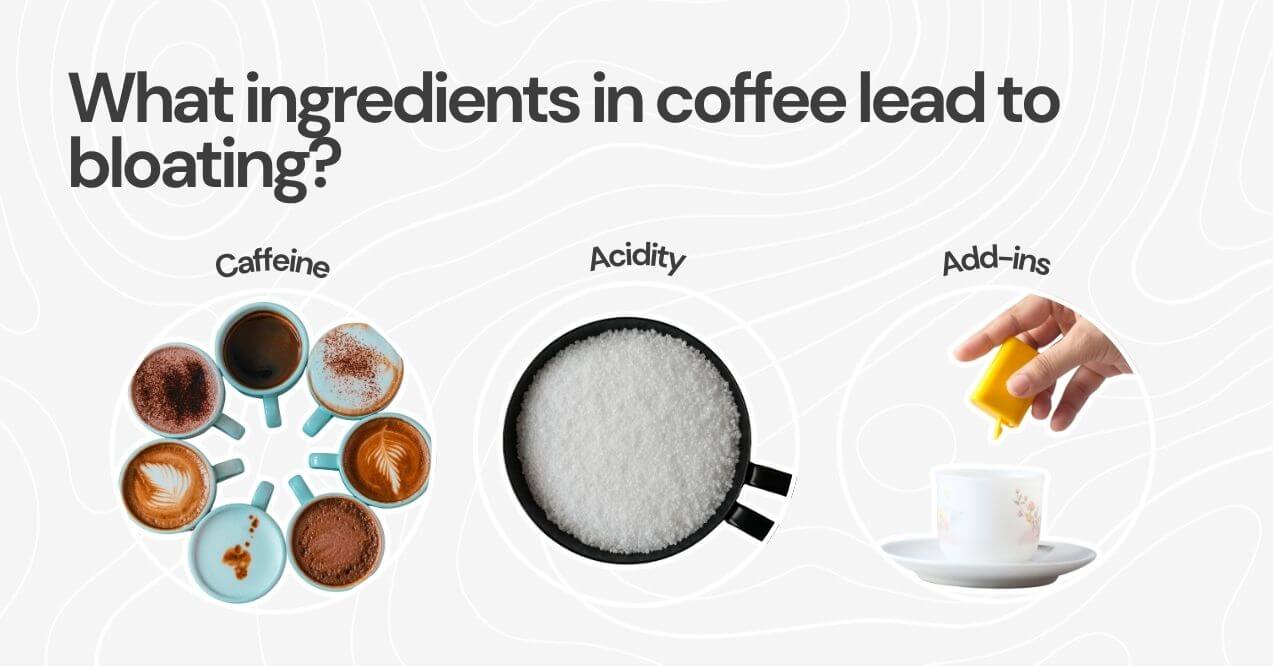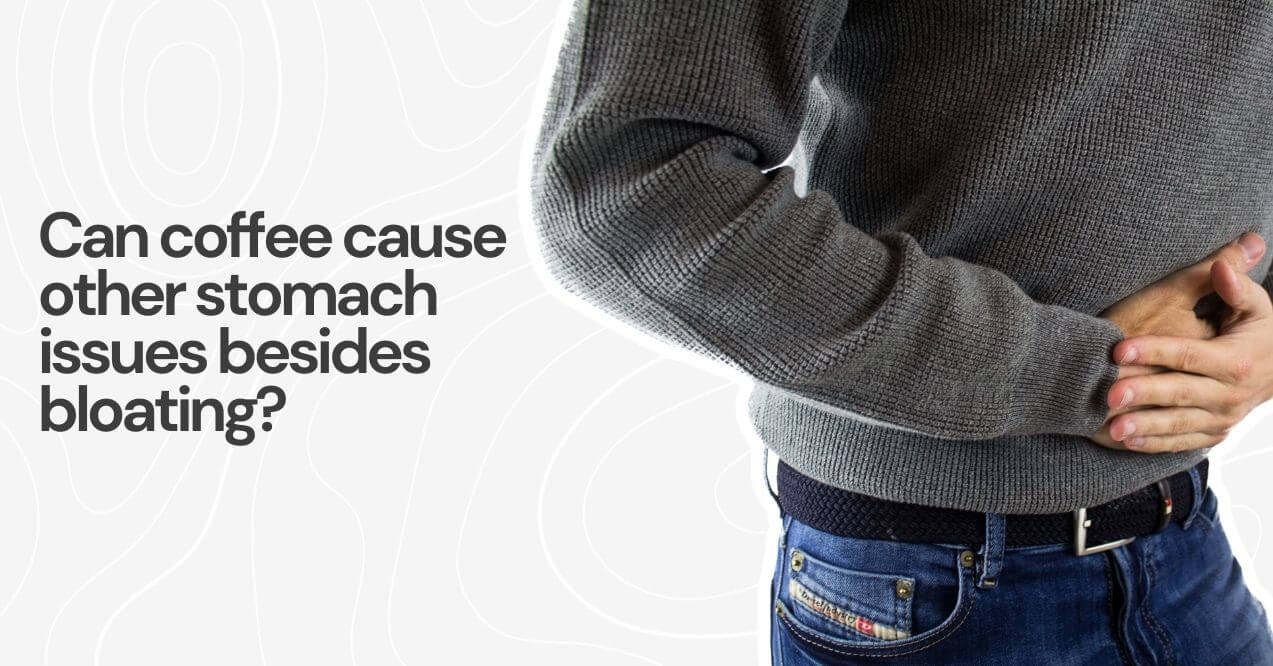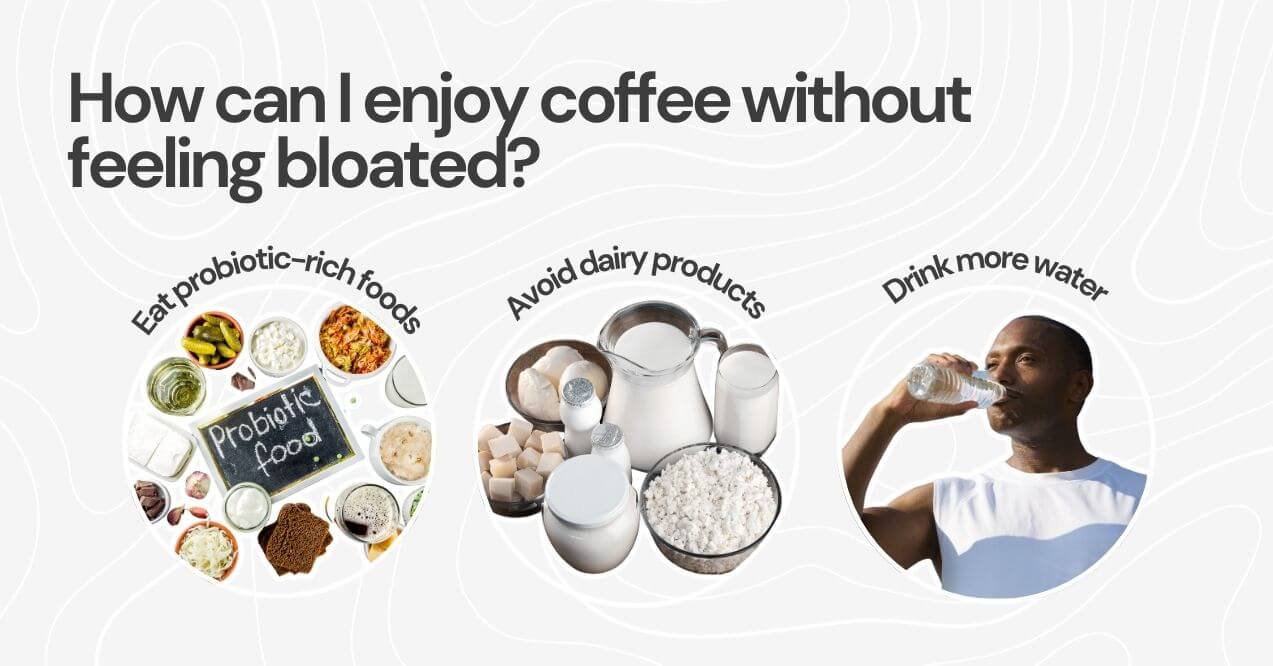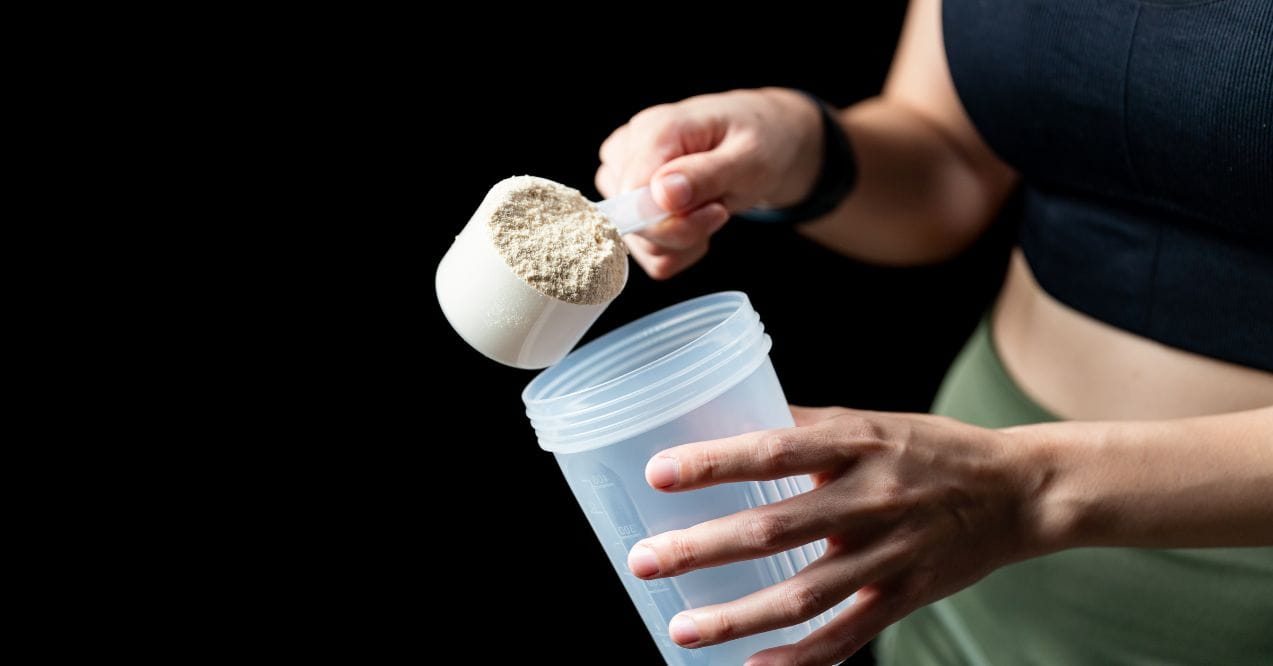Does Coffee Make You Bloated?
Does coffee make you bloated? Many people consider this while enjoying their morning brew. However, it’s not just dietary choices like coffee that can lead to bloating. Natural physiological processes, such as ovulation, also play a significant role. For instance, many women might ask, “Can ovulation cause bloating?” This serves as a reminder that our bodies respond to a variety of internal and external stimuli, all of which can contribute to feelings of bloating.
Since coffee is a staple in many routines, understanding how it affects digestion is essential, especially for those who experience bloating after their caffeine fix. Factors such as diet, hydration, performance supplements and the type of coffee you consume can all influence whether you experience bloating or not.
This article explores the connection between coffee and bloating, breaking down why your favorite beverage might be causing discomfort and what you can do to minimize its effects. By making small adjustments, you can continue enjoying your daily coffee without unnecessary digestive issues.
Key Article Findings:
Does Coffee Make You Bloated? Here’s the Answer
So, does coffee make you bloated? If you’ve ever felt discomfort after drinking coffee, you’re not alone. The bold flavor and caffeine in coffee stimulate the production of stomach acids, which can sometimes lead to bloating and digestive discomfort.
Additionally, coffee acts as a natural laxative, encouraging muscle contractions in the digestive tract. For some individuals, this can contribute to bloating or a sense of urgency. Coffee oils also trigger the release of hormones that regulate stomach contractions, which may lead to queasiness or an unsettled stomach. In some cases, it’s as if your digestive system is responding to coffee with its own jittery rhythm.

What Ingredients in Coffee Lead to Bloating?

Ever wondered why your favorite cup of Joe sometimes leaves you feeling bloated? Let’s unravel the mystery by examining the key ingredients that can contribute to this discomfort.
- Caffeine – The powerhouse behind coffee’s energizing effects, caffeine can stimulate stomach acid production, contributing to bloating.
- Acidity – Coffee’s natural acidity can also trigger discomfort and bloating for some individuals by upsetting the stomach’s balance.
- Add-ins – Ingredients like sugar or artificial sweeteners, often added to coffee, may create gut health issues that contribute to bloating.
Understanding the roles of caffeine, acidity, and additives can help navigate potential bloating issues associated with coffee consumption.
Do All Types of Coffee Affect My Stomach in the Same Way?
Coffee comes in many forms, from classic black to decaf and even nootropic blends. But do they all affect digestion in the same way? Understanding how different types of coffee impact your stomach can help you make the best choice for your digestive comfort.
Regular Coffee
The way coffee interacts with digestion can change based on what you add to it. Ingredients like milk, cream, and sweeteners may contribute to bloating and discomfort, especially for those with lactose sensitivity or sensitivity to artificial additives. Adjusting what goes into your cup can make a difference in how your stomach responds.
Decaf Coffee
Switching to decaf might seem like a gentler option since it contains less caffeine, but acidity is still a factor. In some cases, the decaffeination process can even increase acidity, which may cause bloating or discomfort for those with sensitive stomachs. Choosing a low-acid decaf option can help minimize these effects.
Nootropic Coffee
Nootropic coffee, which includes brain-supporting ingredients like mushrooms and adaptogens, offers more than just an energy boost. While it can enhance focus and mental clarity, its effect on digestion varies. Some individuals may experience bloating due to added ingredients like medicinal mushrooms or herbal extracts. Personal tolerance plays a key role in determining whether nootropic coffee is a good alternative for those prone to bloating.
Can Coffee Cause Other Stomach Issues Besides Bloating?

While the aroma of coffee is inviting, its effects on digestion can vary from person to person. Beyond bloating, coffee can contribute to other stomach discomforts, depending on individual tolerance and consumption habits.
Can Coffee Cause Gas?
Coffee can lead to gas formation in the gut due to its complex compounds, which may stimulate excess gas production. This can result in bloating and discomfort, though individual reactions vary. Paying attention to your body’s response and adjusting your intake can help minimize these effects.
Can Coffee Cause Constipation?
Although coffee is known to promote bowel movements, excessive consumption or sensitivity to its effects may lead to dehydration, which can contribute to constipation. Staying hydrated and moderating coffee intake can help prevent digestive slowdowns.
Can Coffee Cause Stomach Ache?
Some people experience stomach discomfort after drinking coffee, especially if it’s highly acidic or consumed on an empty stomach. If coffee triggers stomach issues, switching to a low-acid variety or reducing intake may improve digestive comfort.
Can Coffee Cause Indigestion?
Coffee’s acidity and ability to stimulate stomach acid production can contribute to indigestion, leading to symptoms like heartburn or dyspepsia. Those with digestive sensitivities or pre-existing conditions may be more prone to experiencing discomfort from coffee. Adjusting portion size, choosing milder roasts, or pairing coffee with food may help reduce these effects.
Is Drinking Coffee Good or Bad for My Health?
The perennial debate surrounding coffee: friend or foe? Let’s delve into the scientific evidence to determine whether your daily coffee habit is a health booster or a potential troublemaker.
The Benefits of Coffee
- Antioxidant Richness – Coffee is packed with antioxidants that actively defend against oxidative stress and reduce pro-inflammatory markers, promoting overall health.
- Cognitive Boost – Caffeine, the primary component in coffee, enhances alertness and cognitive function, providing a mental boost with each cup.
- Potential Cardiovascular Benefits – Moderate coffee consumption may reduce the risk of certain cardiovascular issues. However, it’s essential to limit intake to reap these benefits effectively.
The Potential Downsides of Coffee
- Potential for Sleep Disruption – While coffee promotes wakefulness, excessive consumption or evening intake can disrupt sleep patterns. Moderation is key for ensuring adequate rest.
- Stomach Sensitivity – Coffee’s natural acidity and caffeine content can trigger stomach sensitivity, leading to excess acid production, gastric contractions, and hormonal release in some individuals. Additives like milk or sugar may exacerbate discomfort.
How Can I Enjoy Coffee Without Feeling Bloated?

Does coffee make you bloated? If so, you’re not alone. Fortunately, a few simple adjustments can help you enjoy your daily cup without discomfort.
Eat Probiotic-Rich Foods
Incorporating probiotic-rich foods like yogurt, kefir, or sauerkraut into your diet can improve gut health and support digestion. A balanced gut microbiome may help reduce bloating caused by coffee or other dietary factors.
For added convenience, probiotic supplements can also help alleviate digestive discomfort.
Avoid Dairy Products
Dairy can be a common bloating trigger, especially for those with lactose sensitivity. Opting for dairy-free alternatives like almond or soy milk can make your coffee easier on digestion.
Drink More Water or Tea
Staying hydrated can help minimize bloating, especially if coffee is contributing to dehydration. Drinking water alongside your coffee can support digestion, while switching to a bloating-friendly tea may be a gentler option for sensitive stomachs.
Can I Still Drink Coffee if It Makes Me Bloated?
Enjoying your caffeine fix without bloating is achievable. Consider these options for a more comfortable coffee experience:
- Switch to Low-Acid Coffee – Opt for low-acid coffee varieties to minimize the risk of bloating.
- Explore Stomach-Friendly Alternatives – Consider alternatives like trumeta metabolic greens, a supplement loaded with nutrient-rich greens such as spinach, kale, and spirulina. This superpowder blend aims to support digestive health and provide steady energy levels throughout the day.

Trumeta metabolic greens distinguishes itself by addressing common digestive issues, including bloating, making it an ideal choice for coffee lovers seeking relief from discomfort. It serves as a supportive companion for your stomach, allowing you to enjoy your daily cup without the unpleasant side effects.
Conclusion
Coffee can contribute to bloating due to its acidity, caffeine content, and natural laxative effects, though individual reactions vary. Additives like milk and sweeteners may further heighten digestive discomfort, making it important to tailor your coffee choices based on personal tolerance.
While decaf coffee reduces caffeine intake, it doesn’t eliminate acidity concerns, requiring mindful selection for those with sensitive stomachs. Nootropic coffee, with its added ingredients like mushrooms, may affect digestion differently, highlighting the need for careful experimentation.
For those prone to digestive discomfort, monitoring coffee consumption, choosing low-acid options, and staying hydrated can help create a more comfortable experience. By making small adjustments, you can continue to enjoy your coffee while minimizing the risk of bloating or other digestive issues.
Coffee’s acidity and caffeine can sometimes cause bloating in some people. Try choosing low-acid options or enjoying it in moderation to achieve that sweet spot for your gut.
Absolutely! Following your coffee fix with probiotics is a winner. They foster a healthy gut, potentially banishing bloating. Opt for probiotic-rich foods or snag supplements for robust digestive well-being.
Coffee’s effect on digestion is a bit mixed. It can boost stomach acid production while also encouraging the movement of digestive muscles. Watch how your body reacts and fine-tune that coffee routine for optimal digestive bliss.
Advertisement. This site offers health, wellness, fitness and nutritional information and is designed for educational purposes only. You should not rely on this information as a substitute for, nor does it replace, professional medical advice, diagnosis, or treatment. If you have any concerns or questions about your health, you should always consult with a physician or other health-care professional. Do not disregard, avoid or delay obtaining medical or health related advice from your health-care professional because of something you may have read on this site. The use of any information provided on this site is solely at your own risk.







